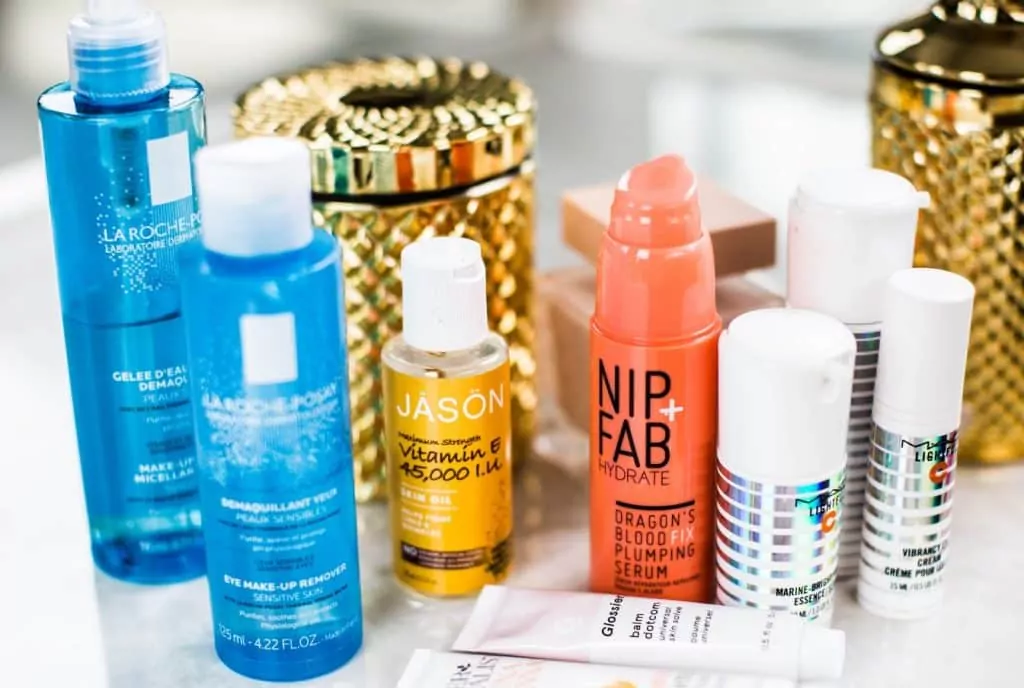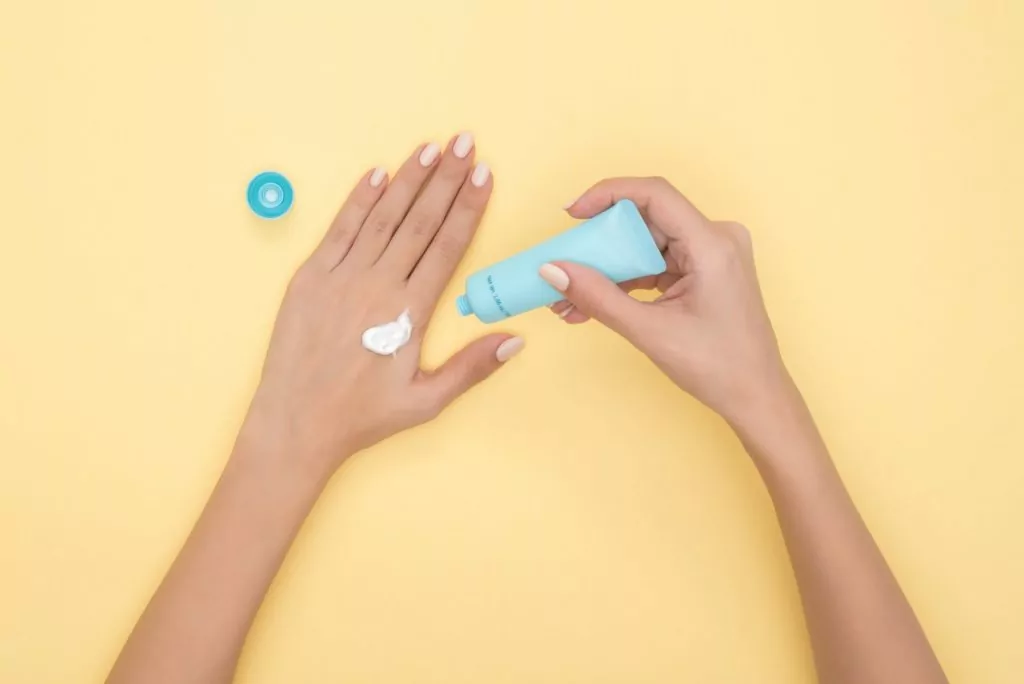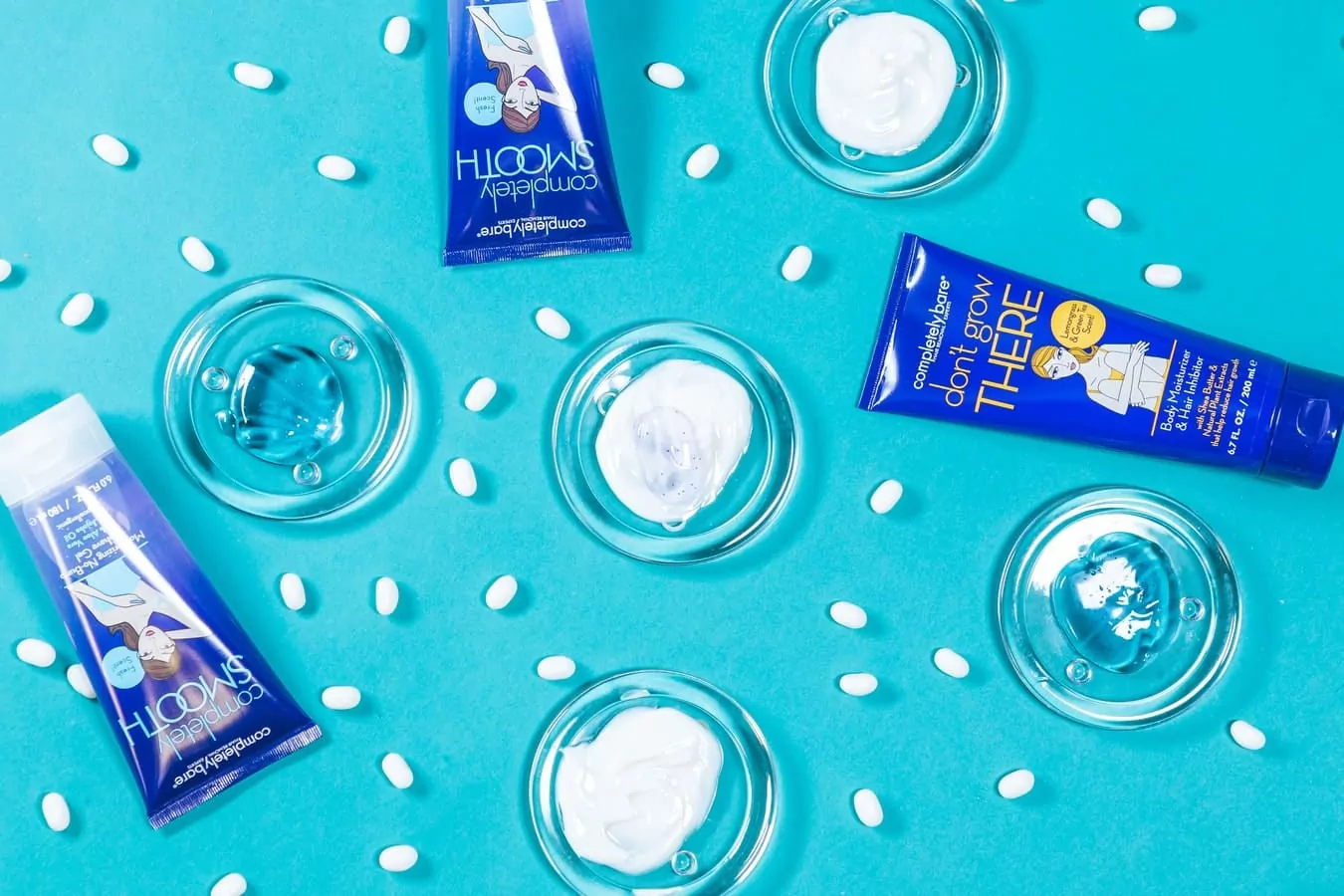by Dr. Fayne Frey, Board Certified Dermatologist
Are you a collector? Some people like to collect stamps. Others squirrel away stacks of comic books or coins. I have a good friend who accumulates shoes. I collect guitars.
As a dermatologist, I encounter a lot of women that collect skincare products.
Do you collect skincare products?
It seems lots of ladies buy skincare products when they hear about the next “big thing” promising spectacular results. It doesn’t matter that they already have a pile of half used containers on their vanities. Or that the ingredients listed on the new label are similar to most of the others. It’s not hard to understand why women eagerly purchase the latest and greatest skincare products on the market; the media bombards us constantly with enticing advertisements for products most of the population does not need. We have to have them and we need them now.
The media brainwashes us to believe our faces need a wide array of products to look and feel our best. But are the latest and greatest ones really better? Or is just the packaging that’s better? Here are my thoughts.

Cleanser
Cleansers remove unwanted dirt, oil and sebum from the skin surface. The truth? No scientific data exists to show we NEED to use a cleanser on our faces. Warm water works well for the majority of people with healthy skin. A lot of us like cleansers – perhaps we feel cleaner when we use them, or like the smell. It’s your choice. But I recommend you don’t spend a lot of money because, in reality, cleanser is optional.
Toner
Toners promise to cleanse, hydrate, soothe, calm, and nourish the skin. Advertisements for toners also claim to remove the residue the cleanser left behind. Just food for thought; how effective is a cleanser that leaves residue on your face? One more thing, the toner allegedly shrinks pores too, but did you know that pores, like the length of your arms, cannot change? A toner is a drying agent that is unnecessary for most of us with healthy skin and can actually cause irritation.
Retinoids
Skincare companies tell us retinoids in our skincare products are necessary to battle the aging process. They used to recommend retinoids for anyone over 50, but for some reason now anyone over 30 is advised to make sure their skincare includes this ingredient.
Antioxidants
The beauty industry promotes antioxidant creams with Vitamin C, Vitamin E or CoEnzyme Q to stimulate collagen production, which takes place well below the skin surface. Fun fact: little evidence exists that over-the-counter cosmetics containing antioxidants actually benefit skin health. And unlike their prescription drugs counterparts, over-the-counter moisturizers that contain Vitamin A provide little proven benefit.
Stem Cells
Stem cells are a big deal in anti-aging lotions these days. The ads for these products caught my attention because I know these lotions do not actually contain stem cells. How do I know? Because live cells can’t possibly survive in a preservative rich emulsion. Stem cell creams are simply moisturizers.
Eye cream
Do you use a special eye cream around your eyes? I don’t and here’s why. The skin around our eyes is no different from the facial skin high on our cheekbones. And an eye cream is a moisturizer with a formulation similar, if not identical, to the less expensive facial moisturizer sold by the same manufacturer. Eye creams generally come in smaller packages that cost more.
Night cream
Cosmetic manufacturers tell us that night creams “rejuvenate” our skin after the sun goes down. How does our skin know the time of day? A night cream is simply a moisturizer without sunscreen filters. Science proves skin replicates 24 hours a day and doesn’t stop when the alarm clock buzzes at 7:00AM.
Primer
Skincare companies recommend women age 50+ apply primer before face makeup. Some say it fills in creases and pores in your skin so the foundation goes on more smoothly. Others brag it keeps your makeup on longer. Does it work? Try it and see for yourself. I don’t see a difference on myself whether I wear primer or not. It’s an expense you probably don’t need. Not only that, primer can cause break-outs in oily skin by clogging your pores.
Firming cream
Firming cream is highly encouraged to make your skin appear more taut. Supposedly, this product replaces necessary substances like collagen in your aging skin. In reality, these creams are not miracle products – and work modestly if at all. They are simply moisturizers that perhaps help plump your top layer of skin to temporarily make it look smoother and tighter.

Products for the rest of your body
The above list contains products recommended for the face only. The beauty industry sells many more for the rest of your body, and the list of “essential” skincare products goes on and on. For example, cosmetic companies recommend a simple body moisturizer after a shower, with a different, “special” hand cream to use to soften exposed skin on your hands. They also promote a separate foot cream to keep the skin on your feet supple. They recommend décolletage cream for the skin on your neck, chest and between your breasts. How does that skin differ from that on your shoulders? By the way, if you don’t already know, a décolletage cream is just a moisturizer. I almost forgot about the elbow & heel creams which we’re told are absolutely necessary too.
It’s exhausting. And I don’t know about you, but I don’t have enough time in my day to apply all those creams, nor do I have enough room in my vanity to store them.
So, what skincare products do we really need to optimize skin health?
This list is short and not terribly exciting. However, it can save you a lot of money and time.
Sunscreen
The single most important skincare product we all need for our skin health is sunscreen. It is the most impactful product in the skincare aisles. Generously apply a broad-spectrum (wide range protection) sunscreen with a Sun Protection Factor (SPF) of 30 or higher. This one product decreases your risk of skin cancer, protects your skin from discoloration, and discourages wrinkles associated with aging due to the sun.
Moisturizer
Skin, the largest organ of the body, is our primary defense against the environment. It’s a barrier to microorganism, irritants and allergens, as well as to the damaging effects of ultraviolet light. To function best, our skin requires adequate moisture. A well formulated moisturizer prevents water loss and provides more hydrated, healthier, and optimally looking skin.
A note about combination products like moisturizers with SPF
Manufacturers make facial moisturizers with sunscreen filters. A lot of women believe if they use a combination product, they won’t need a separate moisturizer and sunscreen. I wish that were true, but it’s not. Many of these combination products are adequate moisturizers, but, all too often, offer inadequate sun protection. Most of us don’t usually apply a thick enough layer of this type of product to obtain the protection listed on the label. Also, these combination moisturizer/sunscreen products are not always broad-spectrum or water resistant, and are rarely reapplied. Their benefit is short lived as a result. Of course, wearing a moisturizer with SPF is better than not wearing any sunscreen at all. I recommend to my patients, however, that they use a separate sunscreen and moisturizer, especially if their skin is dry.
The bottom line
If you are a collector of skincare products, I get it. You may think you need them because advertisers tell you that you do; you really don’t. No specific ingredients in products can be proven to benefit you based on skin location. In a nutshell, if you have healthy skin, all you need is a sunscreen and moisturizer. And if you don’t have healthy skin, make an appointment to see your dermatologist.










